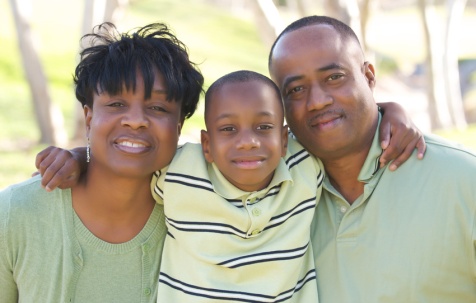Catholic Family, Become What You Are – The New Evangelization And Its Relationship To Catholic Family Life
THE NEW EVANGELIZATION AND ITS RELATIONSHIP TO CATHOLIC FAMILY LIFE
The consequence of all of this is that the Church in its wisdom, through its Servant, Pope John Paul II in 1984, called people to “a New Evangelization that would unfurl with great vigour – just like the original evangelization – a potential for sanctity, a great missionary boom, a vast catechistic creativity, a bountiful manifestation of collegiality and communion, an evangelical commitment to give dignity to man, to generate …a great future of hope in order to propose the civilization of love and, as a mean, a new ‘Christian Culture’ ” (Synod Documents 2009). This New Evangelization would have as its focus “entire groups of the Baptized (who) have lost a living sense of the faith or who no longer consider themselves members of the Church and so live a life far removed from Christ and his Gospel” R.M. 33. This focus on the New Evangelization must not be so exclusive however, that it compromises the pastoral care of the faithful or general missionary activity to the unbaptized which, as we have seen, has existed from the beginning of the Church’s history.
The chief characteristics of the New Evangelization are as follows:
-
The New Evangelization is Christ Centred.
-
The New Evangelization is the responsibility of the entire People of God.
-
The New Evangelization begins at home in the family and in the parish.
-
The New Evangelization is directed to individuals and to whole cultures.
-
The New Evangelization is not limited to the basic Gospel message but is a comprehensive process of Christianization.
-
The New Evangelization calls for a missionary spirituality.
(Synod Documents 2009.)
What is being asked for here then is an invitation to those in the Church to deepen their encounter with Christ and become themselves missionary disciples who invite those who are not part of the Church’s communal life and worship to renew their relationship with God and the Church’s living community of faith. As stated by Msgr. Jason Gordon, Catholics in the New Evangelization “are called to be persons who make a clear option for Christ, have coherence (congruence) between faith and life, live the values of the Kingdom, promote the civilization of love and are willing to be a sign of contradiction” (Official Synod Documents 2009). It was agreed at the Synod that the renewal of three institutions is vital to the success of the New Evangelization in this Archdiocese. These are the family, the Catholic school and the Catholic parish. Familiaris Consortio states very clearly that the well being of society and the Church’s own good are intimately tied to the good of the family. It says that “At a moment of history in which the family is the object of numerous forces that seek to destroy it or in some way to deform it, and aware that the well-being of society and her own good are intimately tied to the good of the family,(7) the Church perceives in a more urgent and compelling way her mission of proclaiming to all people the plan of God for marriage and the family, ensuring their full vitality and human and Christian development, and thus contributing to the renewal of society and of the People of God”. (F.C. #6). It therefore sees human and Christian development as contributing in an essential manner to the renewal of society and the people of God. F.C.#7. At the 6th World Meeting of Families in Mexico City in 2009 the principal conclusions were in line with Aparecida’s “Disciples and Missionaries” which stated that “the Christian family is called to be today, with particular urgency, a subject of evangelization in the ecclesial aspect and a subject of socializiation in the civil aspect”. (Papal Address to the Pontifical Council for the Family d.d. 8.2.10)
Archbishop José Gomez of the San Antonio archdiocese in a February 15, 2010 document stated that “the primary apostolate of lay people, since the early Church, has always been to spread and defend the faith among their families and neighbours and to bring the teachings of Christ to bear on the issues facing their communities”.
Paul VI says, “The family, like the Catholic Church and Christ, ought to be a place where the Gospel is transmitted and from which the Gospel radiates. In a family which is conscious of this mission, all the members evangelize and are evangelized….And such a family becomes the evangelizer of many other families and of the community of which it forms part” F.C. #52. In light of the above it becomes clear that the family is the first and primary location for the New Evangelization to take root and thrive.
When this begins to happen the Catholic school and the Catholic parish will have a wellspring of resources for the evangelization of our society and the world. Msgr. Jason Gordon states it clearly in the Synod Documents 2009 when he says “If the family becomes the domestic church, then it becomes a structure of grace that feeds the Catholic School and Parish, married life, vocations and a renewed Trinidad and Tobago”. (SD 2009 ). It is important to note here that the Catholic school and parish both draw from and contribute to the new evangelization of the family.
The focus for this, the first of a three year cycle of Synod implementation, is the family because as we have seen above that is where the New Evangelization must begin and be focused even as we continue to evangelize in all other aspects of the Church’s life. We anticipate that beginning with the evangelization of families the three Pastoral Priorities of Synod 2009 (New Evangelization, Revitalizing Catholic Culture and Identity, and Regenerating the Moral and Spiritual Values of our Society) will flow into and complement each other as the Archdiocese strives to bring about a Civilization of Love. “Evangelization of the family is about a process that begins with the announcement of God’s purpose for man and woman, married life, human sexuality, and parenting”. (Synod Document 2009). There appears to be no better theology with which to address the evangelization of the family than with John Paul II’s ‘Theology of the Body’ and it is to this catechesis that we turn to next.





